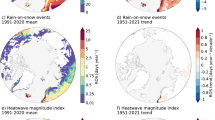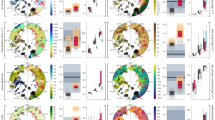Abstract
DR. MURRAY'S ADDRESS. FROM a scientific point of view the advantages to be derived from a well-equipped and well-directed expedition to the Antarctic would, at the present time, be manifold. Every department of natural knowledge would be enriched by system atic observations as to the order in which phenomena coexist and follow each other, in regions of the earth's surface about which we know very little or are wholly ignorant. It is one of the great objects of science to collect observations of the kind Tiere indicated, and it may be safely said that without them we can never arrive at a right understanding of the phenomena by which we are surrounded, even in the habitable parts of the globe.
This is a preview of subscription content, access via your institution
Access options
Subscribe to this journal
Receive 51 print issues and online access
$199.00 per year
only $3.90 per issue
Buy this article
- Purchase on Springer Link
- Instant access to full article PDF
Prices may be subject to local taxes which are calculated during checkout
Similar content being viewed by others
Rights and permissions
About this article
Cite this article
Scientific Advantages of an Antarctic Expedition.1. Nature 57, 420–427 (1898). https://doi.org/10.1038/057420a0
Issue Date:
DOI: https://doi.org/10.1038/057420a0
Comments
By submitting a comment you agree to abide by our Terms and Community Guidelines. If you find something abusive or that does not comply with our terms or guidelines please flag it as inappropriate.



